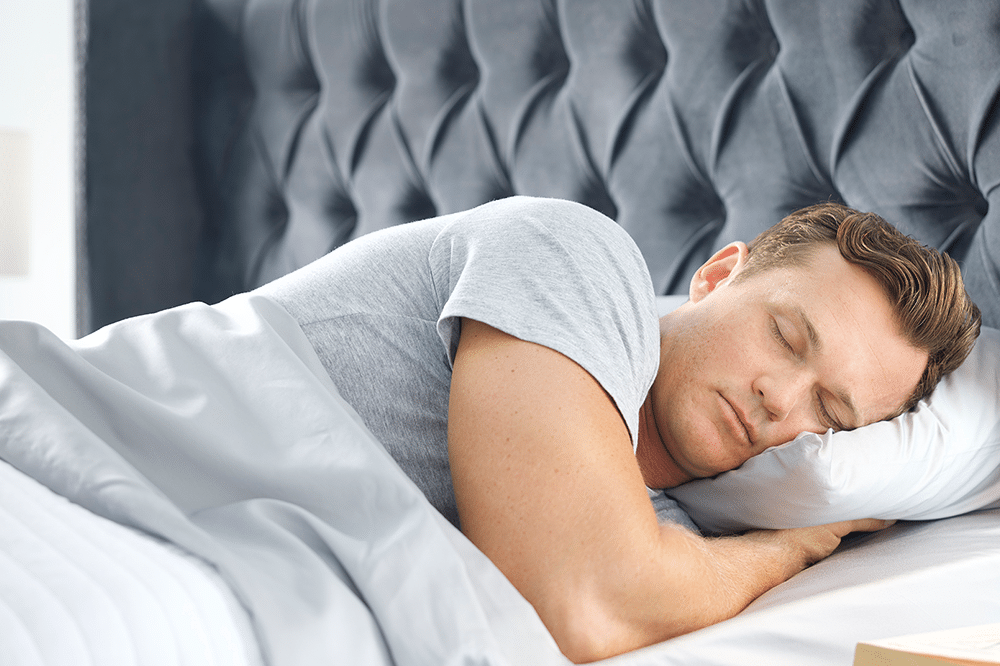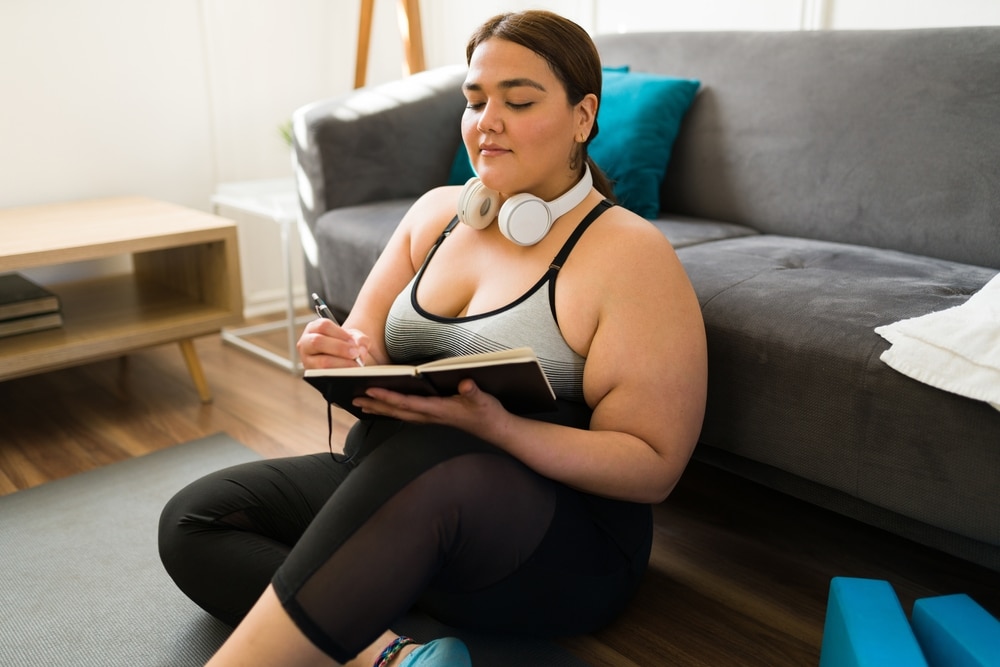Sleep is one of the most important things you do every day. It’s essential for maintaining physical and mental health, supporting learning and memory, and allowing your body to recover and rejuvenate. But did you know that the quality of your sleep is just as important as the quantity? That’s where sleep hygiene comes in.
So, let’s explore the importance of good sleep hygiene practices and how they can help you get the restful and restorative sleep your body needs to function at its best. Whether you struggle with falling asleep or staying asleep or simply want to optimise your sleep quality, it’s time to discover how good sleep hygiene practices can transform your sleep and your life.
First, what do we mean by ‘sleep hygiene’?
‘Sleep hygiene’ refers to a set of healthy habits and practices that can help promote better quality and quantity of sleep. These habits and practices include creating a relaxing sleep environment, establishing a regular sleep schedule, avoiding stimulating activities before bedtime, limiting caffeine and alcohol consumption, and managing stress levels.
Sleep hygiene aims to create an optimal sleep environment and promote healthy sleep habits to help individuals fall asleep faster, stay asleep longer, and wake up feeling rested and refreshed. By practising good sleep hygiene, individuals can improve their overall sleep quality and achieve numerous health benefits associated with adequate sleep.
Why is good sleep hygiene important?
Good sleep hygiene is essential for several reasons. First and foremost, it helps you get the high-quality sleep your body needs to function at its best. When you get good sleep, you feel more energised, focused, and productive during the day. Conversely, poor sleep quality can make you tired, irritable, and even depressed.
But the benefits of good sleep hygiene go beyond just feeling better during the day. Studies have shown that poor sleep quality can be linked to several serious health problems, including obesity¹, diabetes²⁻³, heart disease⁴, and even certain types of cancer⁵. By prioritising good sleep hygiene practices, you can reduce your risk of these health issues and improve your overall well-being.
Additionally, good sleep hygiene practices can be particularly important for those who struggle with sleep disorders such as insomnia or sleep apnea. By creating a comfortable sleep environment and following a consistent sleep schedule, sufferers of sleep disorders may be able to reduce the severity of these conditions and get higher-quality sleep.
Overall, good sleep hygiene is an essential part of a healthy lifestyle. By prioritising your sleep and implementing simple sleep hygiene practices, you can improve your physical and mental health, boost your productivity and creativity, and enjoy a higher quality of life.
Simple tips for practising good sleep hygiene
To take advantage of the benefits of healthy sleep, follow these tips on how to practice good sleep hygiene:
Stick to a consistent sleep schedule
Sticking to a consistent sleep schedule is vital to good sleep hygiene because it helps regulate the body’s natural sleep-wake cycle, also known as the circadian rhythm. The circadian rhythm is a biological process that regulates sleep patterns and is influenced by factors such as light, temperature, and physical activity.
When you stick to a consistent sleep schedule, your body becomes accustomed to a specific sleep routine, and your circadian rhythms are more likely to stay in sync. This should help you to feel more alert and energised during the day and more tired and ready for sleep at night.
In contrast, irregular sleep patterns, such as staying up late on weekends or sleeping in on weekdays, can disrupt your circadian rhythm, making it harder to fall asleep and wake up at consistent times. This can result in sleep difficulties, daytime fatigue, and other sleep-related issues.
By establishing a consistent sleep schedule and sticking to it as best you can, you’re helping to regulate your circadian rhythm and promote better sleep hygiene. This can lead to improved sleep quality, increased daytime alertness, and many health benefits associated with adequate sleep.
Create a relaxing bedtime routine
Creating a relaxing bedtime routine helps signal to the body that it’s time to wind down and prepare for sleep. A comfortable bedtime routine can include activities that help calm the mind and body, reduce stress levels, and promote relaxation.
Some examples of activities that can be included in a bedtime routine for better sleep hygiene include:
- Taking a warm bath or shower
- Practising meditation or deep breathing exercises
- Reading a book
- Listening to calm, soothing music or sounds
- Doing light stretching or yoga
The goal is to find activities that help you relax and unwind and to do them consistently before bed to establish a routine. Doing so limits the mental and physical stimulation that can interfere with sleep.
Create a sleep-conducive environment
Creating a sleep-conducive environment promotes a comfortable and relaxing atmosphere optimal for falling asleep and staying asleep. A good sleep environment typically includes the following elements:
- Darkness: A dark environment helps signal the body that it’s time to sleep. Use blackout curtains or an eye mask to block out bright light that may interfere with sleep.
- Quiet: A quiet environment helps reduce noise disturbances that can wake us up during the night. Consider using earplugs or a white noise machine to help mask any outside noises.
- Comfortable temperature: A comfortable sleep environment is typically cooler than daytime temperatures. The optimal temperature typically sits between 60-67°F (15-19°C), but preferences can vary.
- Comfortable bedding: A comfortable mattress with supportive pillows and a quality mattress can help promote better sleep posture and reduce sleeping problems caused by pain or restlessness.
- Decluttered space: A clean, uncluttered sleep environment can help promote a sense of calm and relaxation.
Creating a sleep-conducive environment can help set the stage for a good night’s sleep. This can lead to improved sleep quality, reduced stress levels, and numerous health benefits associated with adequate rest.
Limit exposure to screens before bedtime
Electronic devices, such as smartphones, tablets, laptops, and televisions, emit blue light that can disrupt the body’s natural sleep-wake cycle, making it harder to go to bed and fall asleep at night.
Blue light contributes to poor sleep hygiene and sleep problems by suppressing the production of melatonin, a hormone that helps regulate sleep. Exposure to blue light before bedtime can delay the onset of melatonin production, making it harder to fall asleep and reducing the overall quality of sleep.
Therefore, to get a good night’s rest, it is recommended to limit screen time before bedtime, ideally for at least one hour. This means avoiding using electronic devices such as smartphones, tablets, laptops, and television.
Limiting exposure to screens before bedtime and engaging in relaxing activities instead allows you to maintain bedtime habits that improve your sleep.
Avoid caffeine
Coffee, tea, soft drinks, energy drinks and chocolate. All of these things have one thing in common; they contain caffeine – a stimulant that can interfere with the ability to fall asleep and negatively affect your sleep health.
The effects of caffeine on the body can last for several hours, making it harder to fall asleep, reducing the amount of deep sleep, and increasing the number of times you wake up during the night.
Therefore, avoiding caffeine at least six hours before bedtime is recommended. This means avoiding coffee, tea, and other caffeinated beverages in the late afternoon and evening. Instead of consuming caffeinated beverages, try decaffeinated drinks or herbal teas, such as chamomile tea, which have relaxing properties to help you fall asleep.
By avoiding caffeine before bedtime, individuals can help promote healthy sleep and maintain good sleep hygiene. This can lead to better overall health, improved mood, and increased productivity during the day.
Minimise alcohol consumption
Although alcohol is a sedative that can help individuals fall asleep faster, it can negatively affect sleep quality and disrupt sleep later in the night.
Alcohol disrupts the body’s sleep cycle by reducing the time spent in deep sleep and increasing the number of awakenings during the night. It can also cause breathing difficulties, snoring, and the development or worsening of the sleep disorder known as sleep apnea. Additionally, alcohol can cause individuals to wake up during the night to go to the bathroom, further disrupting sleep.
It is recommended to avoid consuming alcohol at least three to four hours before bedtime. Instead, drink non-alcoholic beverages, such as water or herbal tea, before bedtime.
Exercise regularly
Exercise can help regulate the body’s natural sleep-wake cycle and promote better sleep quality. It can also improve overall health, assist in chronic disease prevention, and reduce stress and anxiety, which can contribute to insufficient sleep or trouble sleeping.
Exercise has been shown to increase the amount of time spent in deep sleep, which is important for physical and mental restoration. It can also help you to fall asleep faster and wake up feeling more refreshed. However, it’s important to note that exercising too close to bedtime can have the opposite effect and disrupt sleep. So, if you are looking for sleep tips to add to your nightly routine, aim to finish exercising at least two to three hours before bedtime.
And consider this your reminder that most people should aim for at least 150 minutes of moderate-intensity exercise per week or 75 minutes of vigorous-intensity exercise per week, according to guidelines from the Centers for Disease Control and Prevention (CDC).
Manage stress
Stress can activate the body’s “fight or flight” response, which increases heart rate, breathing rate, and blood pressure, making it harder to relax and fall asleep. Additionally, stress can lead to racing thoughts, anxiety, and worry, further interfering with sleep.
If you lead a stressful life, it’s essential to find strategies to manage stress through relaxation exercises such as deep breathing, meditation, yoga, or progressive muscle relaxation. These techniques can help calm the mind and relax the body, making it easier to fall asleep and stay asleep.
It is also important to identify and address sources of stress in daily life, such as work-related stress or relationship problems. This can involve changing work schedules or daily routines, seeking support from friends or family, or seeking professional help from a therapist or counsellor.
By managing stress effectively, you’re doing yourself a big favour in terms of promoting healthy sleep and maintaining good sleep hygiene. This can lead to better overall health, improved mood, and increased productivity during the day.
We’re here to help!
If you aren’t getting enough sleep, often feel tired, or experience daytime sleepiness despite trying your best to maintain healthy sleep habits, it may be beneficial to seek professional help. Our Australian-based medical team can help you fall asleep and stay asleep with prescription sleep medications online.
Sources
-
Magee, CA et al. “Sleep Duration and Obesity in Adults: A Systematic Review.” Sleep, vol. 31, no. 5, 2008, pp. 619-626. DOI: 10.1093/sleep/31.5.619.
-
Cappuccio, FP et al. “Sleep Duration and Risk of Incident Type 2 Diabetes in UK African-Caribbean and White European Adults: The RacE Factor Collaborative Cohort Study.” Diabetologia, vol. 54, no. 5, 2011, pp. 1196-1203. DOI: 10.1007/s00125-011-2058-z.
-
Gottlieb, DJ et al. “Association of Sleep Time with Diabetes Mellitus and Impaired Glucose Tolerance.” Archives of Internal Medicine, vol. 165, no. 8, 2005, pp. 863-867. DOI: 10.1001/archinte.165.8.863.
-
Shan, Z et al. “Association Between Sleep Quality and Cardiovascular Disease Risk: A Meta-Analysis of Prospective Cohort Studies.” European Journal of Cardiovascular Nursing, vol. 17, no. 5, 2018, pp. 384-393. DOI: 10.1177/1474515118758043.
-
Irwin, ML et al. “Sleep Disturbance, Sleep Duration, and Breast Cancer Mortality: A Multicenter, Prospective Study.” Cancer Epidemiology, Biomarkers & Prevention, vol. 22, no. 12, 2013, pp. 2253-2261. DOI: 10.1158/1055-9965.EPI-13-0310.





